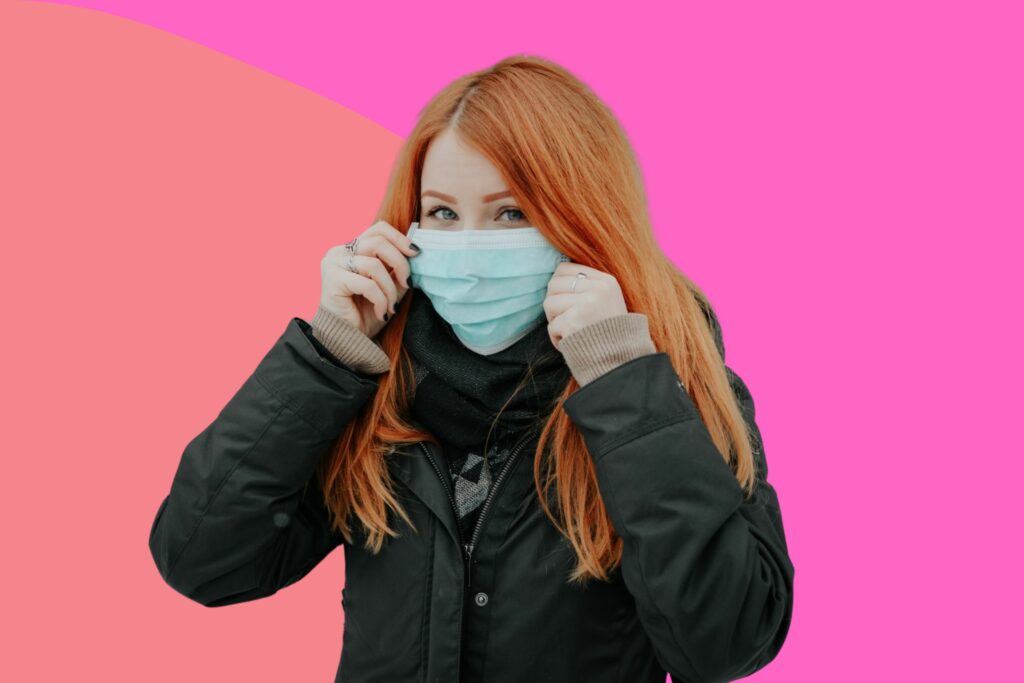Phobias are no strangers to the human experience, and in the UK, a range of common fears affect many individuals across the country. These intense and (by definition) irrational fears can significantly impact daily life, but understanding them is the first step towards management and recovery. With that in mind, here’s an overview of some of the most prevalent phobias within the UK.
Arachnophobia: The Fear Of Spiders
Arachnophobia, or the fear of spiders, is a widespread phobia. Despite the relative harmlessness of most spiders found in the UK, the mere sight of these eight-legged creatures can cause significant anxiety for many. Their unpredictable movements and the way they appear can trigger a fear response out of proportion to the actual threat they pose.
Social Phobia: The Fear Of Social Situations
Social phobia, also known as social anxiety disorder, involves an intense fear of social situations and being judged or negatively evaluated by others. This can include a range of scenarios, from public speaking to attending social gatherings, and can lead to avoidance behaviours that impact one’s social and professional life.
Acrophobia: The Fear Of Heights
Acrophobia, the fear of heights (not to be confused with vertigo, a symptom of this fear) is another common phobia. Individuals with this fear may experience vertigo or panic when faced with heights, even in safe environments. This can limit activities such as climbing ladders, flying, or even standing on a high balcony, despite the desire to participate in these activities.
Pteromerhanophobia: The Fear Of Flying
The fear of flying, known as pteromerhanophobia, affects numerous people and can make air travel a major challenge. The feeling of not being in control, along with the physical sensations of turbulence, can lead to significant distress and avoidance of flying altogether.
Trypanophobia: The Fear Of Needles
Trypanophobia, or the fear of needles, can make medical procedures a source of great anxiety. The anticipation of pain or discomfort associated with injections can cause some individuals to delay or avoid important medical treatments or check-ups.
Cynophobia: The Fear Of Dogs
Cynophobia, the fear of dogs, can be particularly challenging for those affected by it. Encounters with dogs, even friendly ones, can provoke anxiety and fear, making everyday activities like walking in the neighbourhood or visiting friends with pets difficult.
Ophidiophobia: The Fear Of Snakes
Ophidiophobia, the fear of snakes, persists even in areas where encounters with these reptiles are rare. For those with this phobia, the mere thought of snakes can be enough to cause distress, and they may go to great lengths to avoid areas where snakes might be present.
Mysophobia: The Fear Of Germs
Mysophobia, the fear of germs, has become more prominent in recent times. Concerns about cleanliness and contamination can lead to compulsive behaviours such as excessive hand-washing or sanitising, and can interfere with one’s quality of life.
Understanding these common phobias is crucial in fostering empathy and providing support to those affected. With increased awareness and access to effective treatments, individuals can learn to manage their fears and lead more comfortable, fulfilling lives.

Strategies For Overcoming Common Phobias
Indeed, phobias can be as diverse and complex as the individuals who experience them, but the good news is that there are numerous effective strategies for confronting and managing these intense fears. Let’s explore some of the most widely recommended methods for taming the beasts of anxiety that can disrupt daily life.
Cognitive Behavioural Therapy: The Thought Challenger
Cognitive Behavioural Therapy (CBT) is a structured, evidence-based approach that helps individuals identify and challenge the negative thought patterns that contribute to their phobias. It’s akin to a mental detective game, where you track down the irrational beliefs and replace them with more balanced, realistic ones. Over time, this can lead to a significant reduction in phobic reactions.
Exposure Therapy: Step By Step Approach
Exposure therapy is a gradual process that involves slowly and repeatedly confronting the feared object or situation until the anxiety response diminishes. It’s a bit like easing into a cold swimming pool—one toe at a time—until you’re swimming laps without a second thought. This method helps to desensitise individuals to their fears and can be incredibly empowering.
Mindfulness & Relaxation Techniques: The Calm In The Storm
Mindfulness and relaxation techniques are powerful tools for managing the physiological symptoms of anxiety that accompany phobias. By focusing on the present moment and engaging in deep breathing or progressive muscle relaxation, individuals can achieve a state of calm and reduce the intensity of their fear responses.
Hypnotherapy: The Subconscious Ally
Hypnotherapy uses the power of suggestion to promote positive change while the individual is in a relaxed state. As James Mallinson, a top London hypnotherapist, explains, it’s a way of communicating directly with the subconscious mind to encourage a different perspective on the feared object or situation. For some, this can be a shortcut to altering deeply ingrained phobic responses.
Virtual Reality Therapy: Practice Makes Perfect
Virtual reality therapy allows individuals to confront their fears in a safe, controlled digital environment. It’s an innovative way to practice real-world scenarios without the perceived real-world risks, providing a bridge between knowing what to do and being able to do it in actual anxiety-provoking situations.

Support Groups: Strength In Numbers
Support groups offer a space for sharing experiences and coping strategies with others who understand what it’s like to live with a phobia. This collective environment can provide comfort, insights, and a sense of community that is invaluable when facing one’s fears.
Professional Help: Expert Guidance
For those whose phobias significantly impact their quality of life, seeking help from mental health professionals such as psychologists or psychiatrists can be a crucial step. These experts can offer tailored treatment plans, support, and guidance to help individuals understand and overcome their fears.
The Bottom Line
Each person’s journey to overcoming their phobia is unique, and what works for one may not work for another. It’s important to explore different options, perhaps combining several approaches, to find what works best for you. With the right tools and support, overcoming phobias is an achievable goal, leading to a life with less fear and more freedom.
*The information provided above is for general informational purposes only and is not intended to be a substitute for professional medical advice, diagnosis, or treatment. Phobias are serious mental health conditions, and individuals experiencing intense fears or anxieties should seek the advice of a qualified healthcare provider. The descriptions of phobias and their impacts are not exhaustive and may not encompass all aspects of these conditions. If you are struggling with a phobia, please consult with a mental health professional who can offer personalised support and treatment options tailored to your specific needs.*





